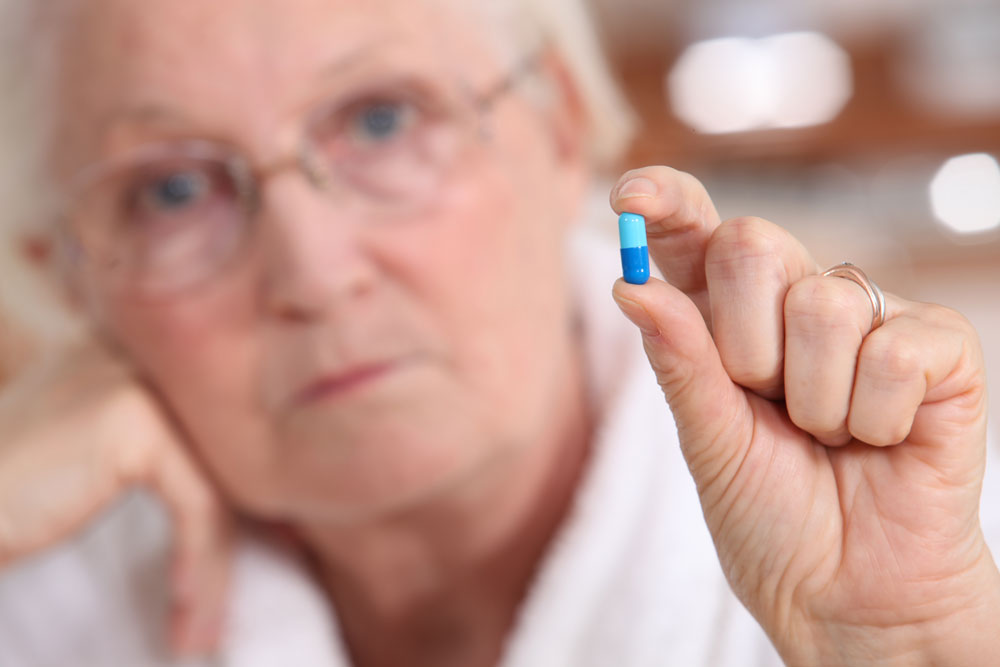How do you work with those who are feeling down?
This AI translated article is based on Swedish conditions. Hopefully, it can inspire those interested from other countries.
It is common to find low mood and depression among the elderly. There is much that can be done in addition to drug treatment. Exercise, conversation, social activities, and outdoor activities are important elements of life. Often, the relationship with close ones suffers because the elderly person is sad and perhaps dwells on negative thoughts. It is important to remember that anxiety and depression are very treatable conditions, even among older adults. With the right support and care, older people can continue to lead meaningful and enjoyable lives. Preventing and managing these mental health problems is crucial in promoting the well-being of older individuals and creating a rewarding old age.
 Bild från Pixabay
Bild från PixabayAnxiety and depression in the elderly
Aging itself is not a cause of depression. There are several reasons why depressive disorders are more common in old age. Grief, loss, loneliness, somatic disease, understimulation, as well as certain drug treatments, can contribute to depression. Anxiety in the elderly is often due to underlying depression. Somatic disease is often behind "worry" in the elderly.
Elderly people are more successful in committing suicide than younger people. It is possible to treat suicidal thoughts, but it is important to identify and take them seriously. There are good tools for assessing depression in the elderly. Always inform the doctor if you suspect that a person is harboring suicidal thoughts.
There was a man in a nursing home who was deeply depressed. He had received very good care at the home and really appreciated the staff. One day he could no longer cope and asked to be admitted to a psychiatric care unit. He took his life in the care unit a few days after he was admitted.
Depression and anxiety can be different expressions of the same underlying disease where individual differences determine which picture appears most clearly. It is rarely classical depression symptoms. The elderly often complain of "ill health", reluctance, and similar diffuse symptoms. Fatigue, insomnia, increased worry, irritation, cognitive impairment, and physical symptoms like pain rather than sadness. Dizziness is common and they may ask to see the doctor frequently. Hypochondria and paranoid symptoms are common. Anxiety often manifests in the body with heart issues, gastrointestinal problems, sleep problems, pain, and aches.
There are alternatives to drug treatment. It is important to have regularity in lifestyle including sleep and exercise. Exercise has a proven antidepressant effect - at least 3 sessions of 30 min. walk/week. Likewise, being outside and exposed to daylight. Adequate lighting in the home and on the unit. Social activation and conversation. Moderate alcohol consumption.
Anxiety and depression are two common mental health problems that affect people of all ages, including older adults. Recognizing and managing these conditions is crucial for maintaining a good quality of life and well-being even in old age.
Anxiety in the elderly
Anxiety can take many forms, including generalized anxiety, social anxiety, and panic attacks. Older adults can be particularly vulnerable to anxiety due to life changes such as retirement, physical health problems, and the loss of loved ones. Common symptoms of anxiety in the elderly include:
- Worry and fear about the future.
- Difficulties in relaxing or feeling restless.
- Physical symptoms such as palpitations and muscle tension.
- Sleep problems.
- Difficulties concentrating.
Depression in the elderly
Depression is more than just feelings of sadness. It is a serious mental illness that affects mood, thoughts, and body functions. Older adults may be more prone to underreport their feelings of depression and attribute them to normal aging phenomena. Common symptoms of depression in the elderly are:
- Sadness that lasts longer than two weeks.
- Loss of interest in previously enjoyable activities.
- Fatigue and decreased energy.
- Increased isolation and social withdrawal.
- Sleep problems, including difficulty sleeping or increased sleep.
- Feelings of worthlessness or guilt.
Managing anxiety and depression in the elderly
It is important to involve the doctor in the nursing home when it comes to assessments of mental health. Sometimes medication is a necessary part of treatment. In addition to medication, other measures can contribute to recovery:
- Talk therapy
- Social activities and socializing with friends and family
- Good diet and regular exercise
- Good sleep
- Stress management techniques, such as meditation and deep breathing exercises, can be helpful.
- Striving to achieve a meaningful and active old age can have a positive impact on mental health.
- Animals in care, for example, therapy dogs.
For anxiety, small gestures like sitting and chatting, perhaps giving a little hand massage or offering a walk can mean a lot. Also, activities like care singing, therapy dogs or other can help alleviate anxiety. The handling of anxiety needs to be adapted to the resident and what works for them.
Reflection questions on anxiety and depression
Care staff:
- Do you have residents who are being treated for depression?
- Do you recognize the symptoms above from residents who have not been diagnosed with depression?
Manager, nurse, occupational therapist, and physiotherapist:
- How do you work with residents suffering from mental health problems?
- Do you make sure to motivate them to participate in activities and outdoor visits?
- Are there many residents who take antidepressants?
- Do you offer conversations?
Residents and relatives:
- What is your view on mental health?
- Do you and your relative have the opportunity to talk about anxiety, depression, and other mental health issues?
Erland Olsson
Specialist nurse
Sofrosyne - Better care every day

Aktuellt i media
-
2026-02-16 04:00
04 Bemötande
What can you do to make your accommodation attractive to someone who is going to move in?
info Foto: Mostphotos
Foto: Mostphotos - 2026-02-09 04:00 14 Läkemedelshantering
-
2026-02-05 04:00
12 Personlig omvårdnad
"Foot Care in Elderly Care - How to Prevent Problems and Promote Health" Good foot care is fundamental for maintaining walking ability and avoiding sores.
info
- 2026-02-02 04:00 19 Samhället utanför
- 2026-01-29 11:10 01 Kvalitet
- 2026-01-26 04:00 03 Ledarskap





